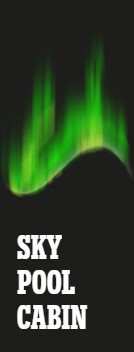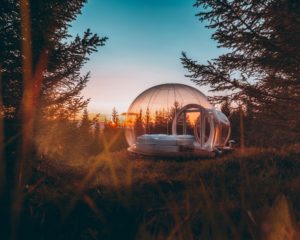When can you see the Midnight Sun in Iceland
The Midnight Sun in Iceland illuminates the country throughout the day and night during summer.
When can you see the Midnight Sun in Iceland
The Midnight Sun in Iceland illuminates the country throughout the day and night during summer.
The Midnight Sun in Iceland is a fascinating phenomenon that takes place between May and August. Synonymous with summer, longer days mean more hours to enjoy Iceland's many attractions, as well as its vibrant cultural scene.
The Midnight Sun reaches its peak around the summer solstice, (or Sumarsólstöður) which generally falls on June 21st each year. Setting beyond the horizon for only an hour each day, Iceland becomes a land of eternal sunlight, renewing its reputation every year as one of the planet’s most surreal and alluring destinations.
For much of the Spring and Autumn (or Fall, for US readers), Iceland resembles many other European countries in its climate and daylight hours, with the sun setting around 6 PM. Both seasons are still considered beautiful, by any standard, though they lack the magical ambience of the Midnight Sun at its full height.
What is summer like in Iceland?
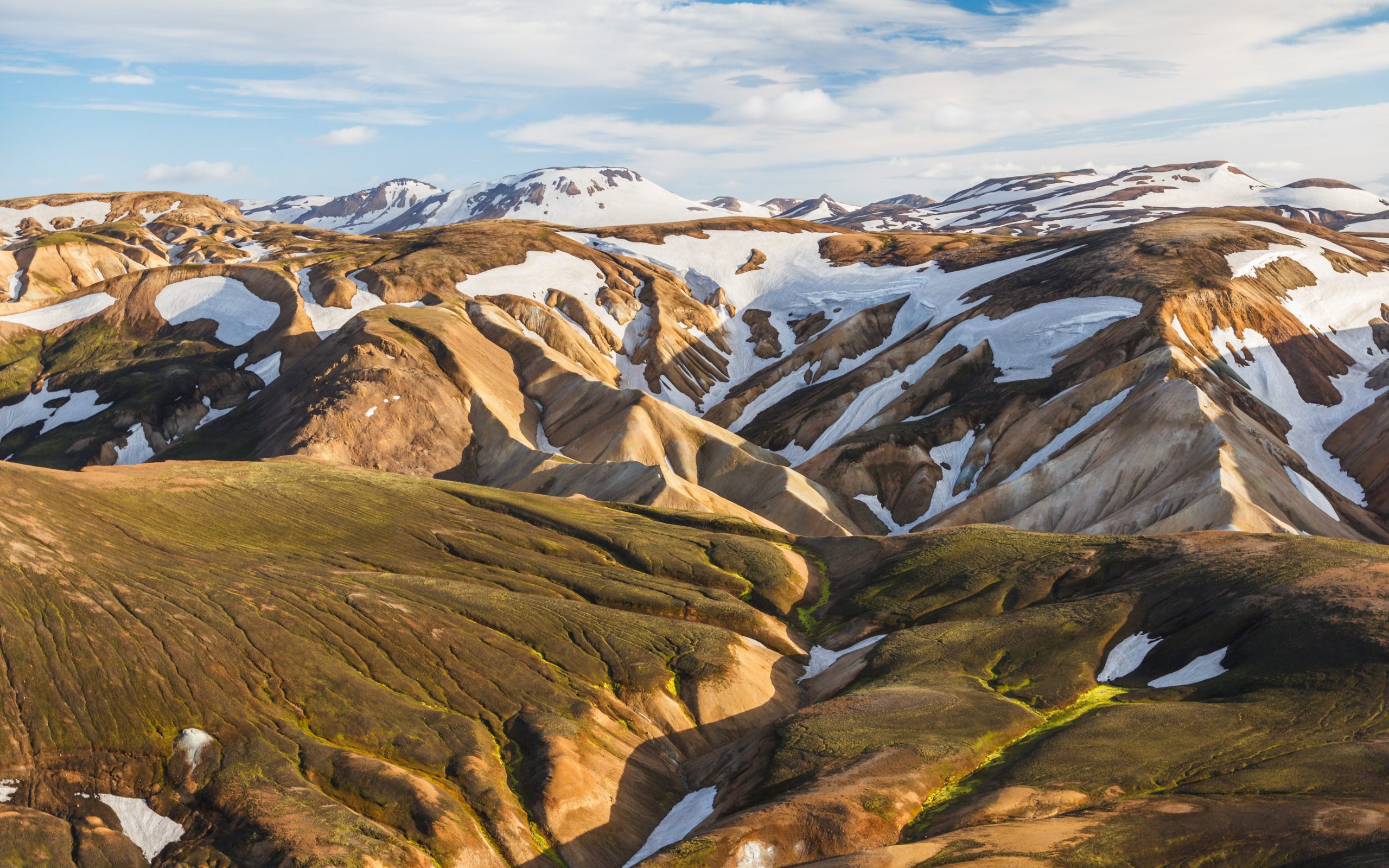
When most people think of Iceland, they picture a frosted land of snow-capped mountains, iceberg-filled glacier lagoons and soothing outdoor hot tubs. This description is accurate enough in winter, but Iceland’s warmer months defy the expectations that come with its name, resembling someplace else entirely.
Rolling green meadows, sweeping hills and welcoming coastal settlements wait on being discovered by summer guests. With days that can reach up to 20–25 °C (68–77 °F), Iceland becomes a surprisingly fitting summer getaway, providing guests ample time beneath the Midnight Sun to explore the many opportunities available here.
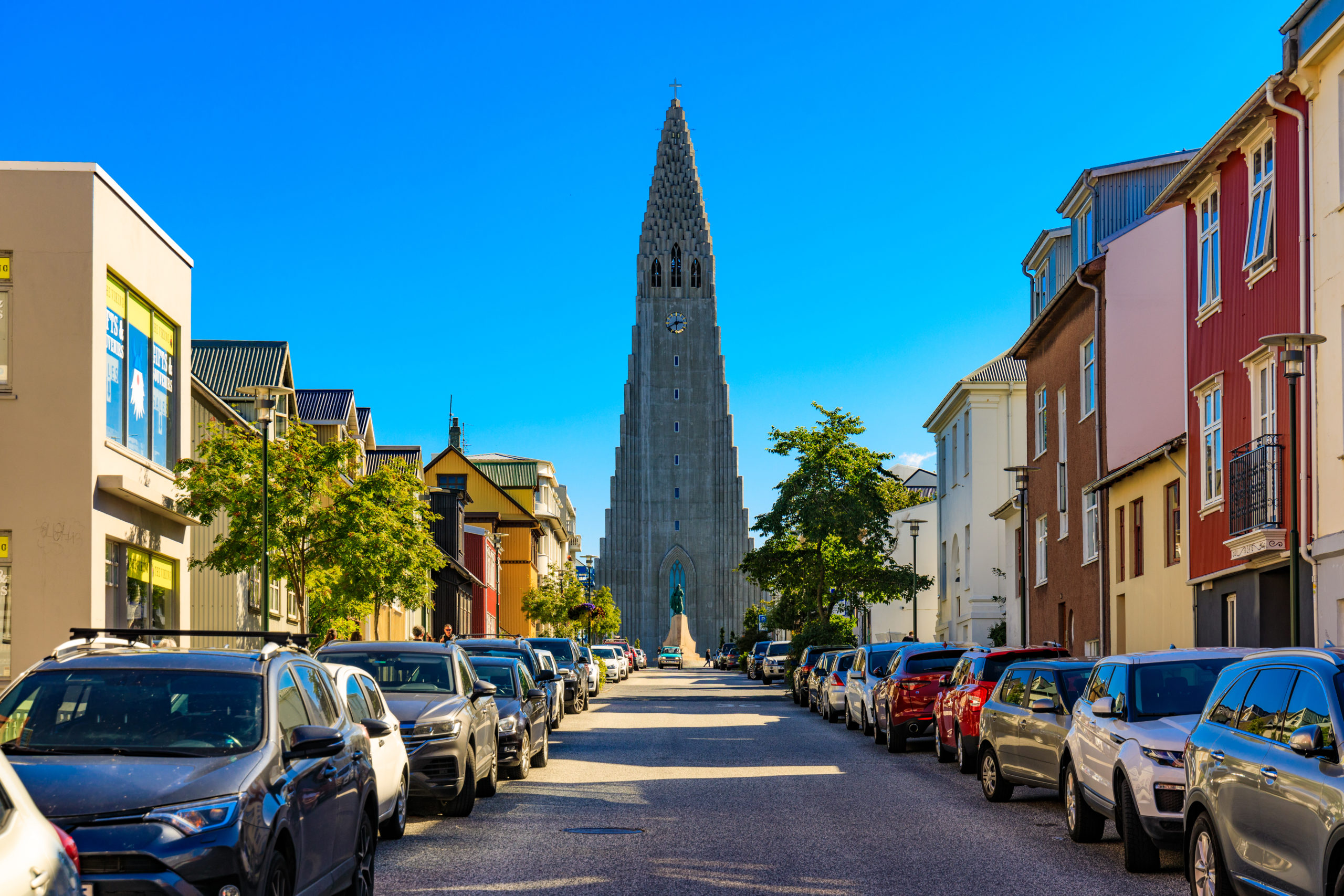
It is during the summer that Iceland’s most prominent festivals are held. Music festivals like Secret Solstice and Sonar are now staples of Iceland’s cultural circuit, attracting a wealth of local artists and more giant stars from abroad. In previous years, great acts including the Black Eyed Peas, Led Zeppelin’s Robert Plant, Cypress Hill and Rita Ora.
Summer is also a brilliant season to see Iceland’s wildlife. Sheep roam the countryside freely, and guests can regularly see Icelandic horses grazing by the famous Ring Road. Bird-lovers will be particularly interested in seeing the iconic Atlantic Puffin, a migratory species that nests in Iceland during the season. (In fact, twitchers can find the world’s biggest puffin colony in the Westman Islands, just south of the Icelandic mainland.)
What causes the Midnight Sun in Iceland?

While it might seem straight out of a science-fiction movie, there are solid reasons why the Midnight Sun appears in Iceland’s sky as it does.
Our planet rotates on an axis tilted at 23.5 degrees during its orbit, meaning higher latitudes are exposed to more sunlight throughout specific periods each year. When it is the Northern Hemisphere’s turn to be more revealed, particular countries, including Iceland, experience what’s known as the Midnight Sun.
Iceland is located a touch below the Arctic Circle, which sits at a latitude of 66.5°N. Grímsey Island, 40 kilometres from the country’s northern coastline, is the only Icelandic territory that constitutes being within the Arctic Circle.
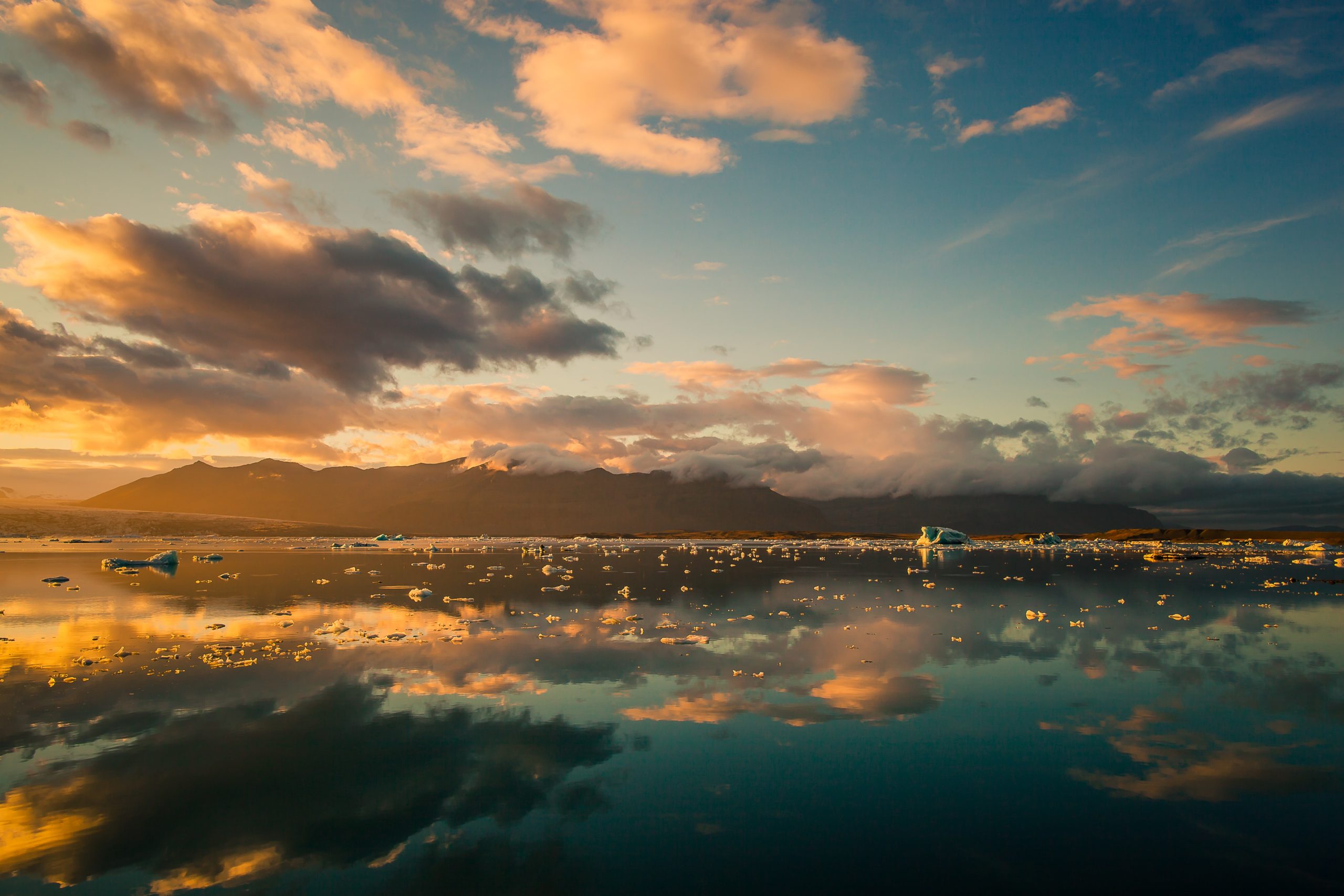
Iceland undergoes what’s known as a ‘Polar Night’ when the Southern Hemisphere is facing in the opposite direction to the sun. Throughout this time, Iceland experiences only a few hours of sunlight a day, making for incredibly dark winters.
In summer, the Westfjords is the one location in Iceland that experiences near 24 hours of sunlight due to its geographical position in the country’s northwest. Guests can visit many memorable sites in the Westfjords, including the tranquil Ísafjörður Bay and the thunderous, layer-cake shaped waterfall, Dynjandi.
Other destinations one can see this phenomenon include Alaska, Norway, Russia, Canada, Finland, Sweden and Greenland. However, given the wealth of experiences in Iceland, we sincerely believe this to be among top destinations to see the Midnight Sun firsthand.
Top locations to experience the Midnight Sun in Iceland
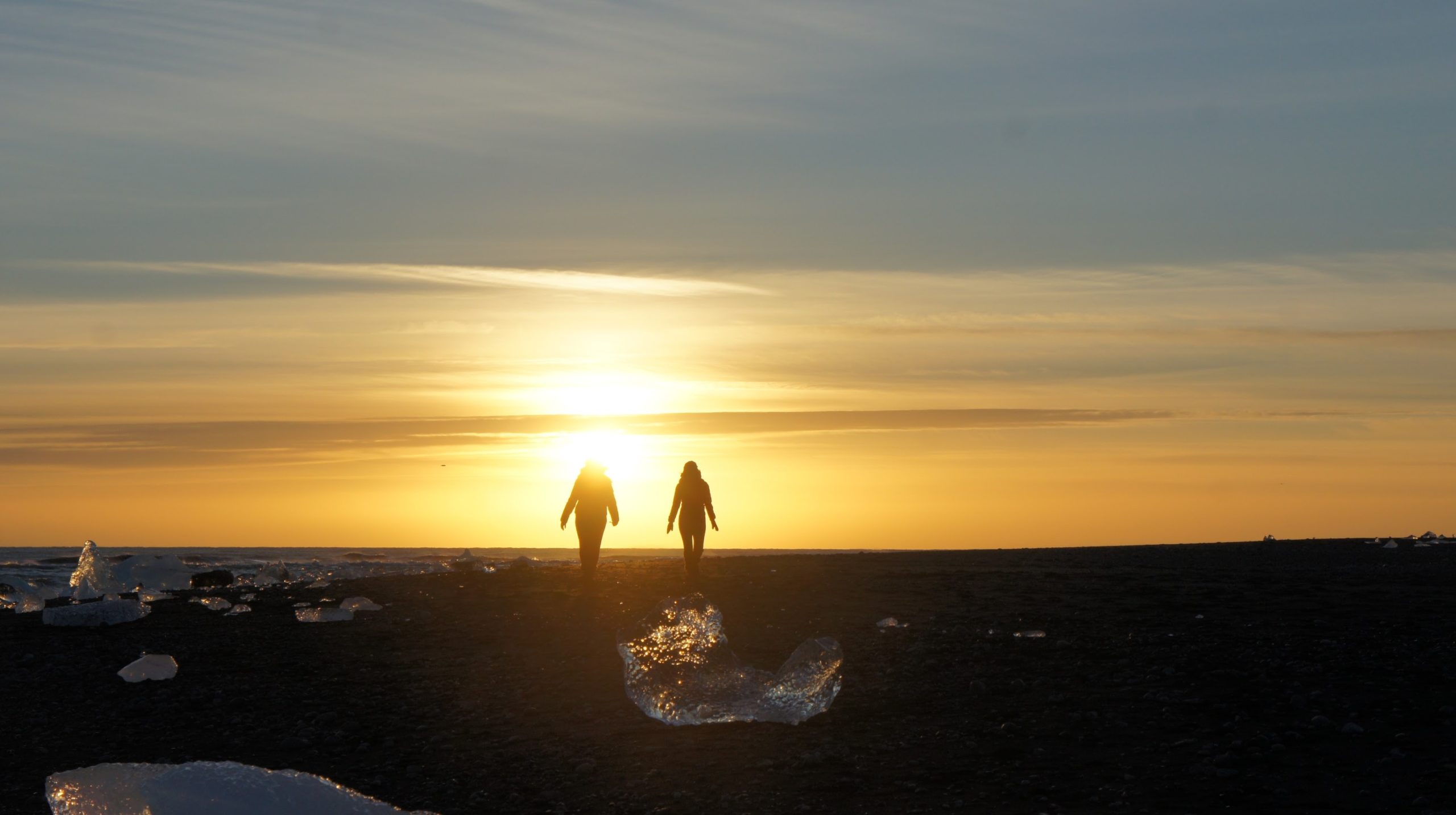
With its translucent icebergs reflecting each ray of light, Jökulsárlón glacier lagoon is the most famed spot for witnessing how the Midnight Sun tones Iceland’s landscape. Though the lagoon’s icebergs are smaller during the summer than winter, the breadth of Vatnajökull National Park can be witnessed around you, unhampered by fog, cloud-cover or rain.
Any one of Iceland’s waterfalls makes for a good choice too. Those on the South Coast, like Skogafoss and Seljalandsfoss, are obvious, but perfectly ample choices. Gullfoss, which is part of the Golden Circle, also looks stunning beneath the Midnight Sun’s rays, as does the northern giant, Dettifoss.
Mountains are another brilliant choice of subject for those looking to appreciate nature beneath the Midnight Sun. The sharpened peak of Kirkjufell, on the Snaefellsnes Peninsula, is a popular peak among visitors and is widely thought to be Iceland’s most photographed mountain. Those in Reykjavik can make do with the city’s landmark mountain, Esja, which looks especially dramatic during the summer months.
PLAN YOUR JOURNEY
Travelling to Iceland?
Check our overnight tours with a driver guide that includes a one night stay in a bubble.
*Starting from ISK 59.900 per person
How to best enjoy the Midnight Sun in Iceland
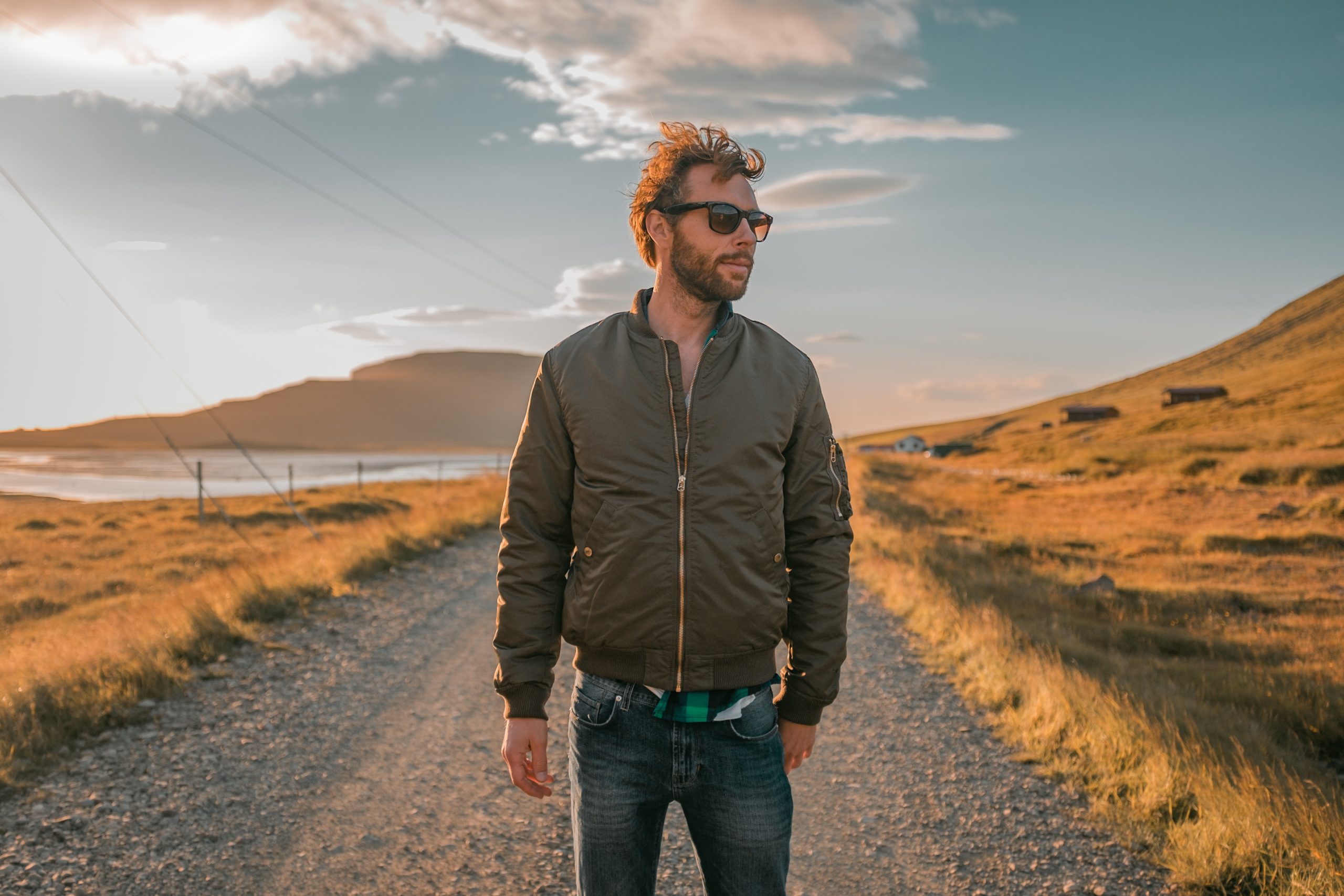
Iceland is positively brimming with fun activities competing for your time. With the Midnight Sun high in the sky throughout the night, you’ll have plenty of time to explore the vast array of opportunities available to travellers here.
Whale watching is among Iceland’s most popular tour activities. With over twenty whale and dolphin species found in Icelandic waters, this adventure on the high seas is a fantastic choice for wildlife lovers looking for a closer perspective. During summer, tours run late into the evening, allowing you additional time to see the humpbacks, minkes and harbour porpoises commonly sighed on these trips.
For those of a more thrill-seeking persuasion, ATV and quad-biking should be right up your alley. This high-speed, high-octane tour provides a fun and adrenaline-pounding means of experiencing this country’s nature. The only question is before zooming-off; do you have the bottle?
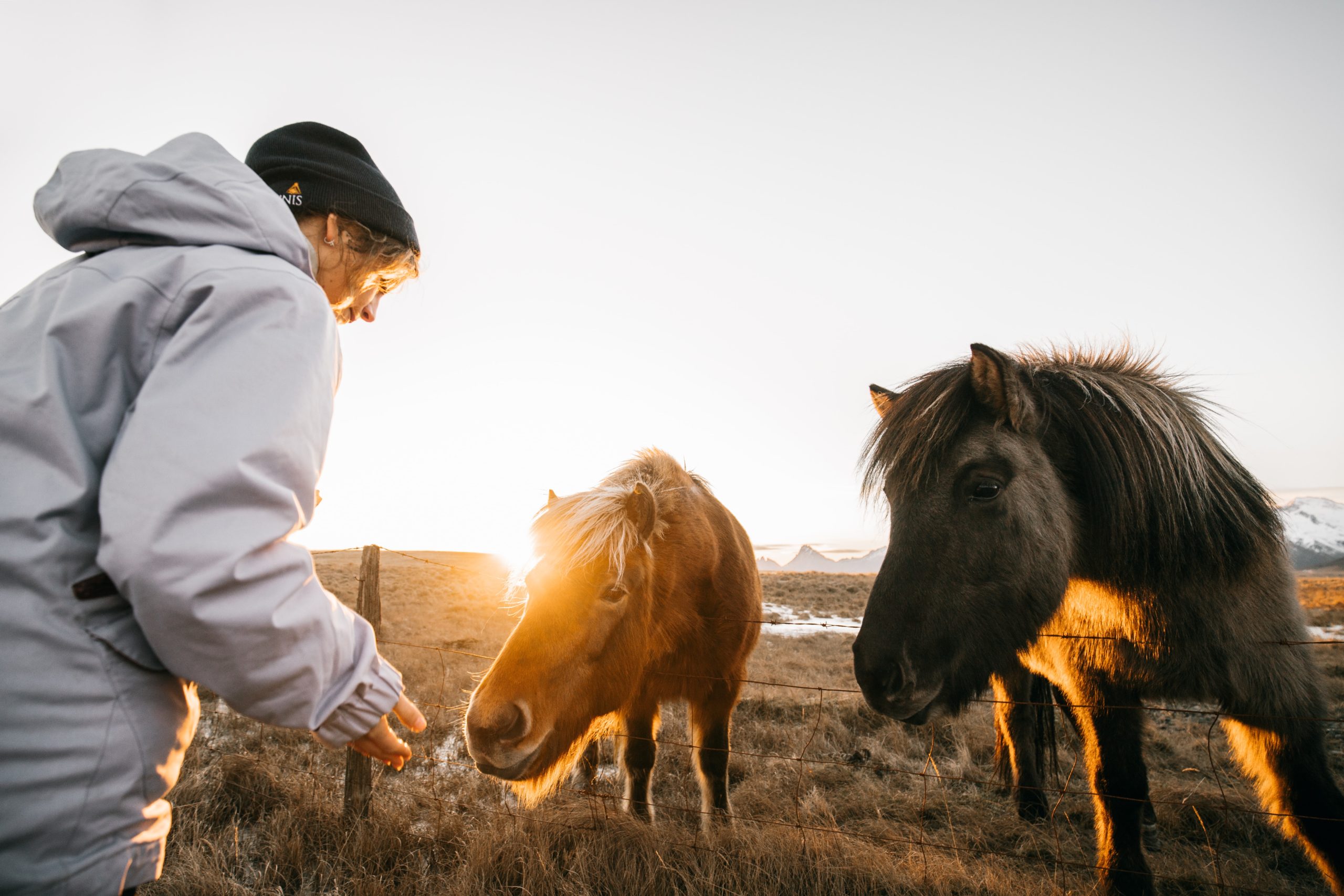
Visitors looking to experience the countryside by more peaceful means might instead try their hand at horse riding. The Icelandic horse is a famous breed amongst equestrians, best known for its short stature, curious intelligence and ability to trot uniquely. Importantly, Icelandic horses are friendly and used to the company of humans, making this tour a brilliant choice for families and newcomers.
Glacier hiking in the summer might seem against the grain, but it offers many benefits over doing so during the cold, blizzard-heavy winter. For one thing, hiking under the Midnight Sun is an excellent experience in itself, making for a less challenging hike overall.
From atop an ice cap, you will have staggering panoramic views over the surrounding landscape, with clear visibility that allows for the mountains, ocean, and everything in between to remain in sight. On the glacier itself, you will appreciate the intricate ice sculptures, moulins and crevasses, all twinkling beneath the summer sunlight.
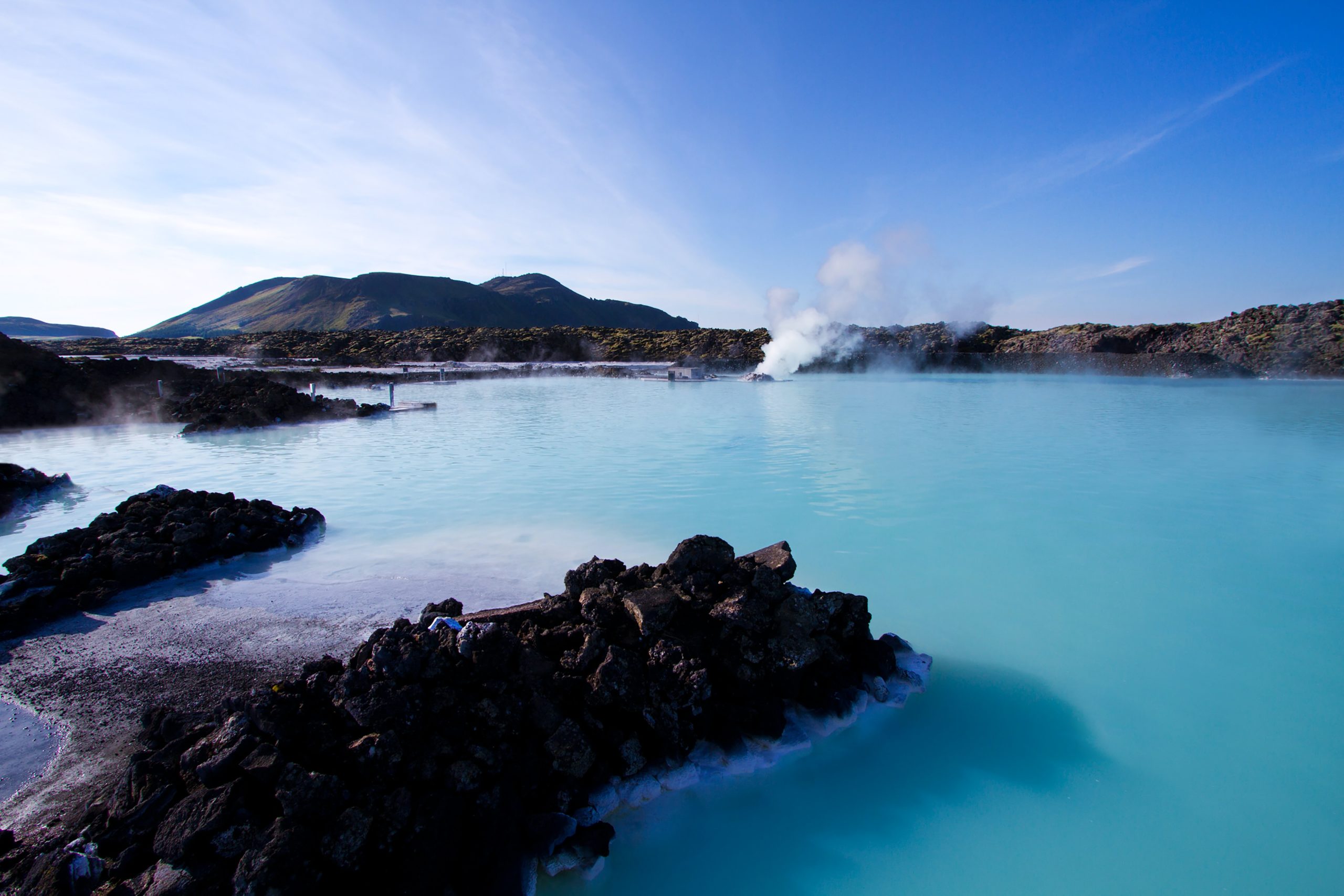
After a hard day’s adventuring, there is no better way to unwind than with a visit to one of Iceland’s many luxury spas. With their tantalising geothermal tubs, on-site saunas and steam rooms, Iceland lives up to its reputation as a country well-trained in the arts of relaxation and personal health.
While the Reykjanes Peninsula’s Blue Lagoon might be the most famous of Iceland’s geothermal spas, countless other worthy counterparts are found countrywide, including Krauma, Vok, Laugarvatn Fontana, Myvatn Nature Baths and the Secret Lagoon.
One of the greatest pleasures summer offers is the chance to get to know Iceland’s capital city, Reykjavik. It is effortless to find yourself paralysed with appreciation when strolling around the capital’s streets, forced to stop every few minutes or so to look upon a new statue, park or church.
Of course, one should aim to see Reykjavik’s most beloved landmarks, including the unique, stepping-stone steeple of Hallgrimskirkja Lutheran Church, or the intrinsically designed glass architecture of Harpa Concert Hall.
Do Icelanders have any Midnight Sun traditions?
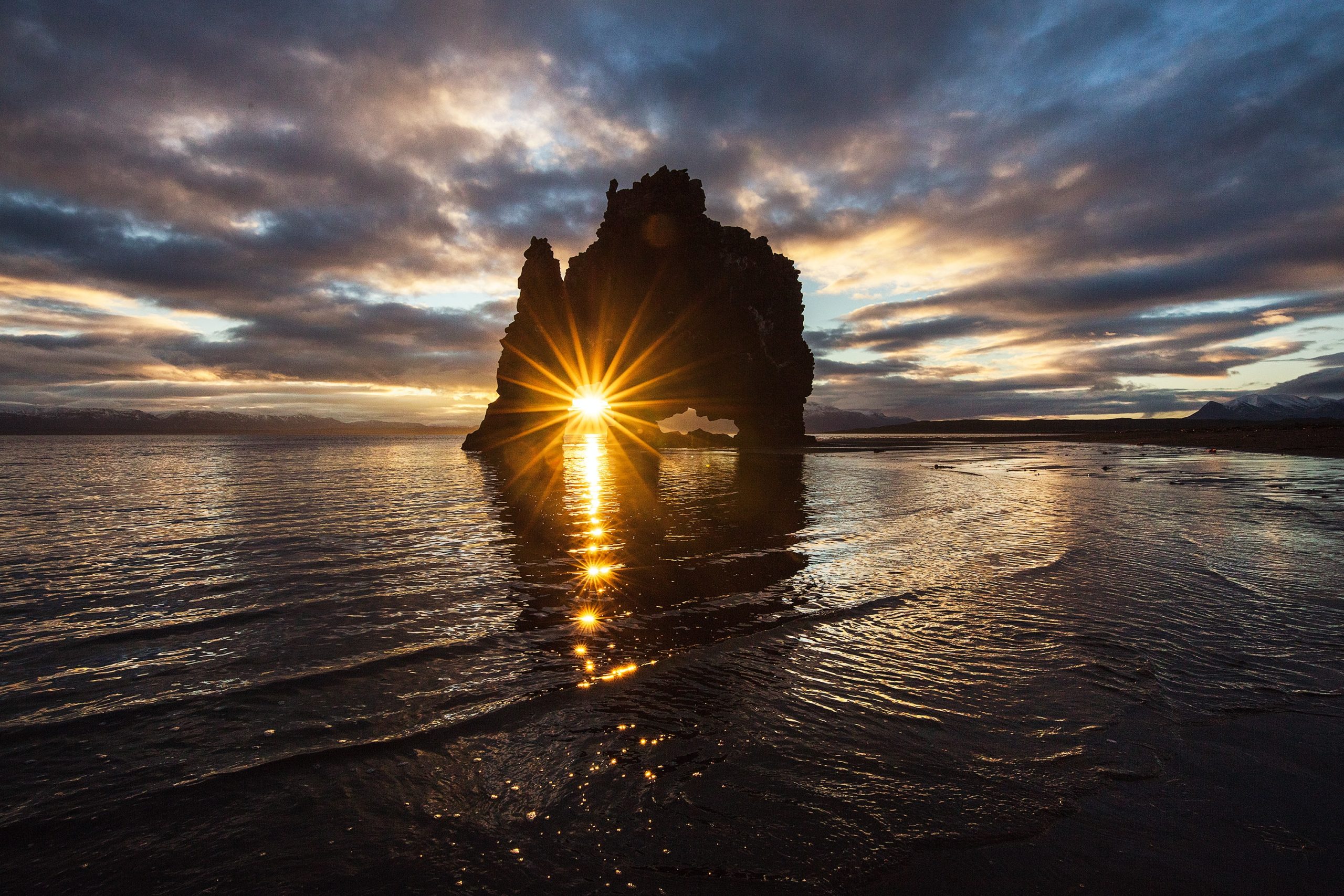
We have already mentioned that summer sees Iceland’s biggest festivals rolling into town. Still, there is one festive event, celebrated on June 24th each year, that is mainly linked to the Midnight Sun’s presence. Of course, we are talking about Jónsmessa, better known to English speakers as Midsummer’s Night.
Named after John the Baptist, this local take of a Christian holiday is typically Icelandic in so much as the event comes packaged with all sorts of strange folktales and goings-on. If the sagas are anything to go by, Jónsmessa will see Iceland’s seal colonies turn into humans, cows will gain the power of speech, and local people will roll themselves in dew-laden grass for the health benefits it provides.
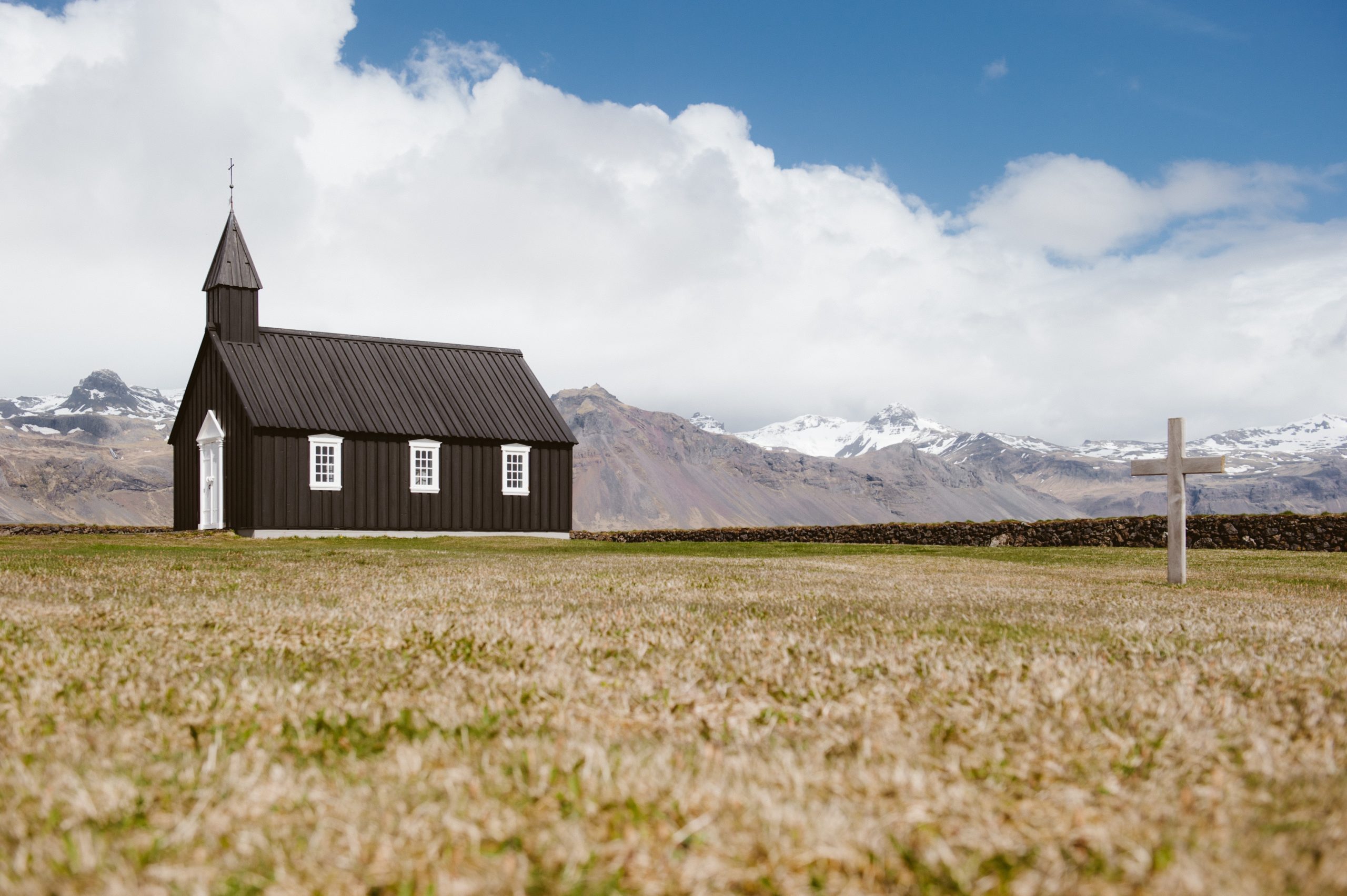
Circumstances get stranger still. Suppose you choose to take a seat at a four-way crossroads, with each leg heading towards different churches. In that case, you might encounter Iceland’s Huldufolk (“Hidden Folk”), better known as elves, who will attempt to lure you into the wilderness with food and treasures.
We would advise against sitting on the road at the best of times, but you want to avoid doing such a thing around mid-June especially.
In reality, Jónsmessa is not so much celebrated today as it is appreciated as a valuable part of Icelandic history. From a modern perspective, the strange, surreal imagery associated with the holiday might have something to do with the bounty of psychotropic mushrooms that sprout in Iceland during this time.
Historical records demonstrate that picking medicinal herbs was a tradition of Jonmessa, so this line of thinking might not be as far-fetched as you might at first believe.
How to sleep during the Midnight Sun in Iceland
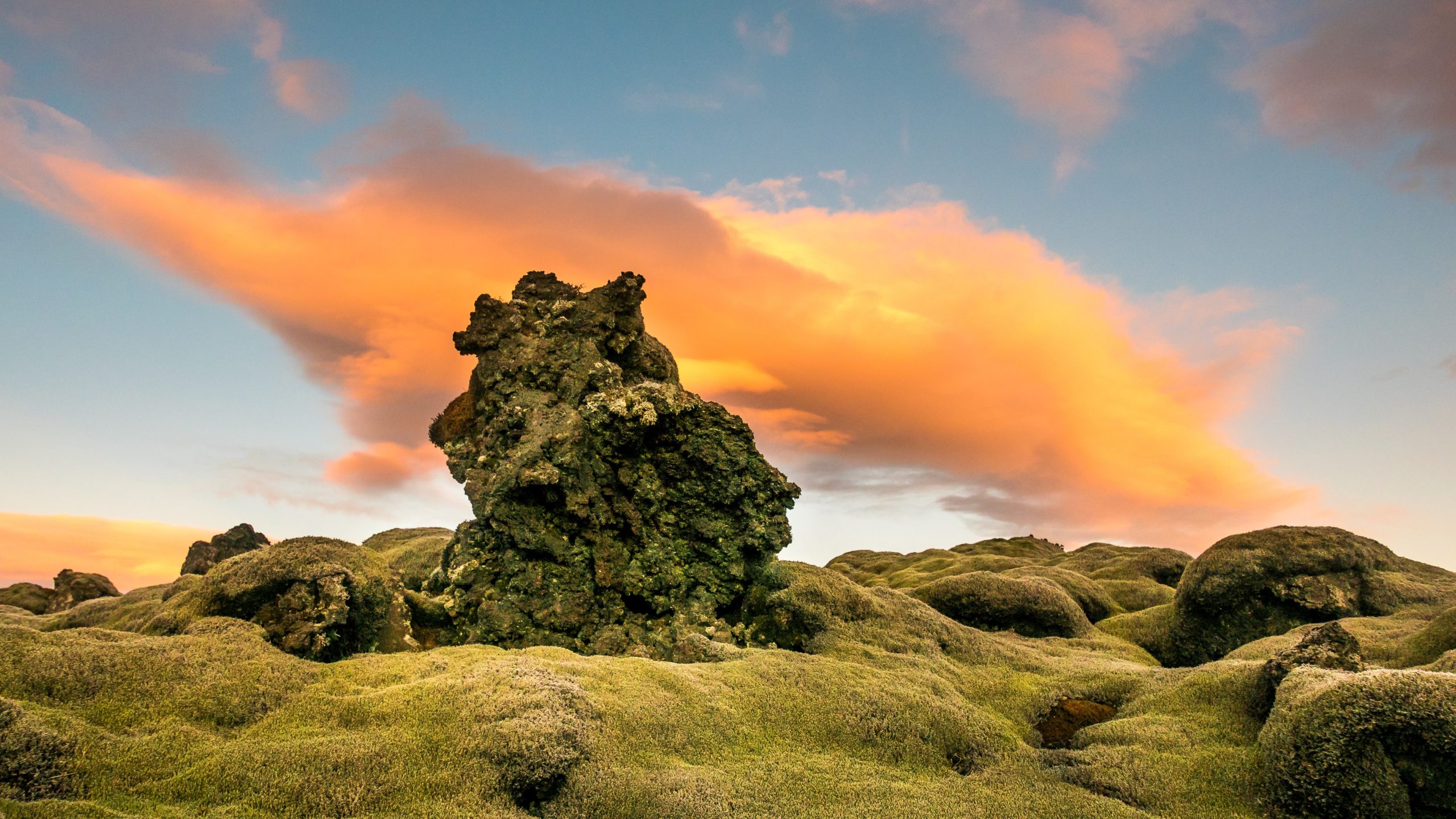
If you’re someone who has trouble drifting-off when it’s light outside, the Midnight Sun in Iceland can pose a problem. Then again, there are measures you can take to help ease you into a sound sleep.
The Midnight Sun can be an unwelcome presence when all you want is a little shut-eye, but there’s no reason to let it get in the way of feeling fresh throughout your trip.
Some locals have adopted using blackout curtains or boards to prevent any sunlight from entering their bedrooms. Such thinking goes a long way and is crucial to creating a dark, harmonious environment for yourself a couple of hours before deciding to sleep.
Much in the same vein, one easy way to ensure your rest is to pack a sleep mask. With one of these handy (dare we say, fashionable) nighttime essentials, you’ll be sure to recuperate your energy each evening, leaving you fresh to get out there and explore the next morning. Sleep masks can be brought from home, bought at the airport or in one of the many tourist shops that dot the capital.
If you’re someone who has trouble drifting-off when it’s light outside, there are measures you can take to help ease you into a sound sleep. Unfortunately, the Midnight Sun can be an unwelcome presence when all you want is a little shut-eye, but there’s no reason to let it get in the way of feeling fresh throughout your trip.
Some locals have adopted using blackout curtains or boards to prevent any sunlight from entering their bedrooms. Such thinking goes a long way and is crucial to creating a dark, harmonious environment for yourself a couple of hours before deciding to sleep.
Much in the same vein, one easy way to ensure your rest is to pack a sleep mask. With one of these handy (dare we say, fashionable) nighttime essentials, you’ll be sure to recuperate your energy each evening, leaving you fresh to get out there and explore the next morning. Sleep masks can be brought from home, bought at the airport or in one of the many tourist shops that dot the capital.
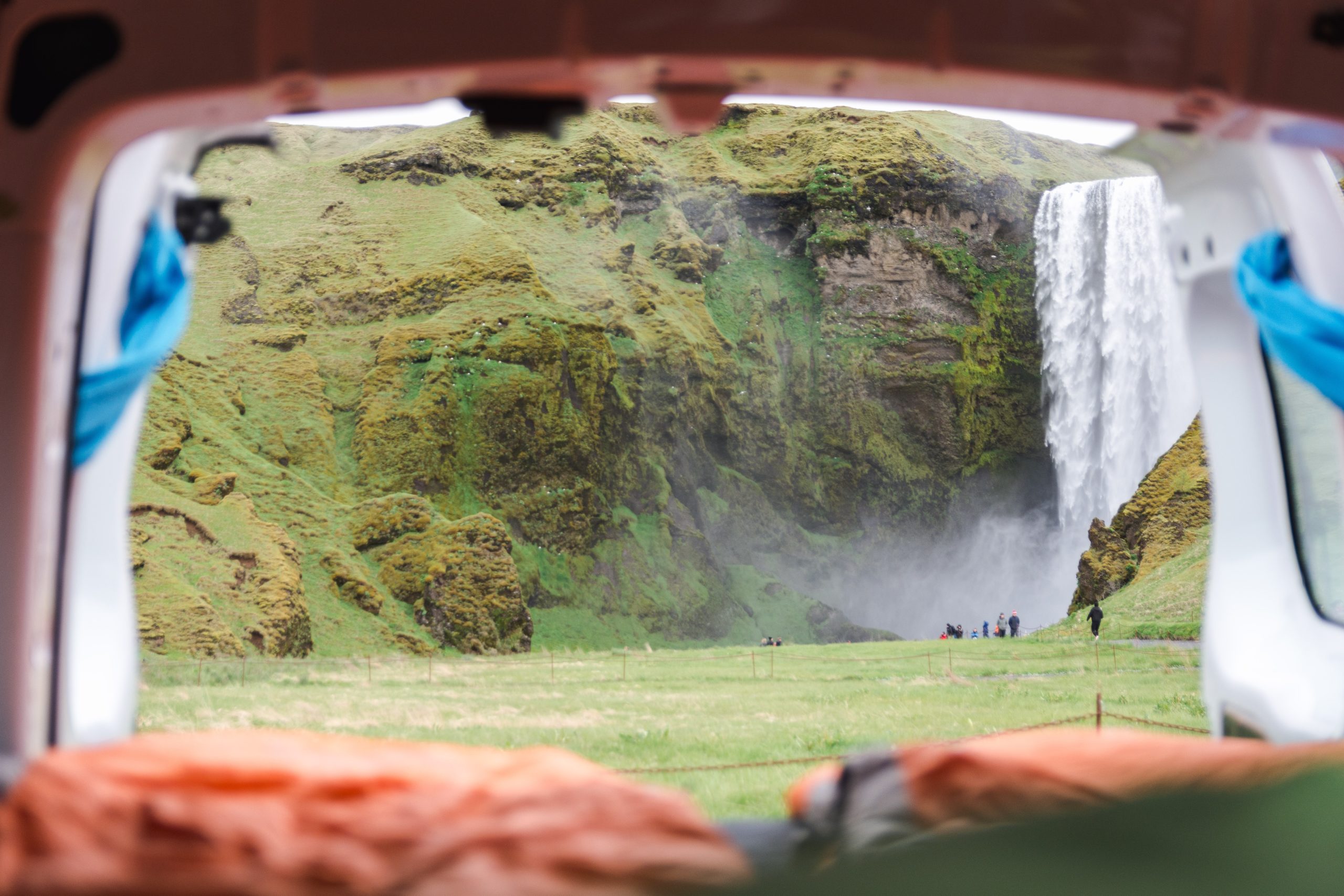
Another consequence of the Midnight Sun that might prevent you from sleeping is sunburn. Believe it or not, the summer sun in Iceland is very powerful and is more than capable of causing pain and discomfort to those who do not protect against it.
With that in mind, you should also not mistake the sun shining for it being warm outside, as this is not always the case here, even during the summer. Did we mention that Iceland’s weather is notoriously unpredictable?
Remember, extra sunlight brings extra energy with it, and it is not uncommon to feel somewhat out-of-step regarding when you wake and when you should sleep.
This feeling should be welcomed as an authentic part of the Icelandic experience, but it can certainly be a tad unsettling for some. If you are light-sensitive, we advise adorning a pair of sunglasses during the later parts of the day to negate the Midnight Sun’s hold over you.
Most visitors to Iceland welcome extra time awake, spending these newfound hours partying in downtown Reykjavik, enjoying late-night jacuzzi sessions or even out on the road, visiting side-attractions around the country.
How to photograph the Midnight Sun in Iceland
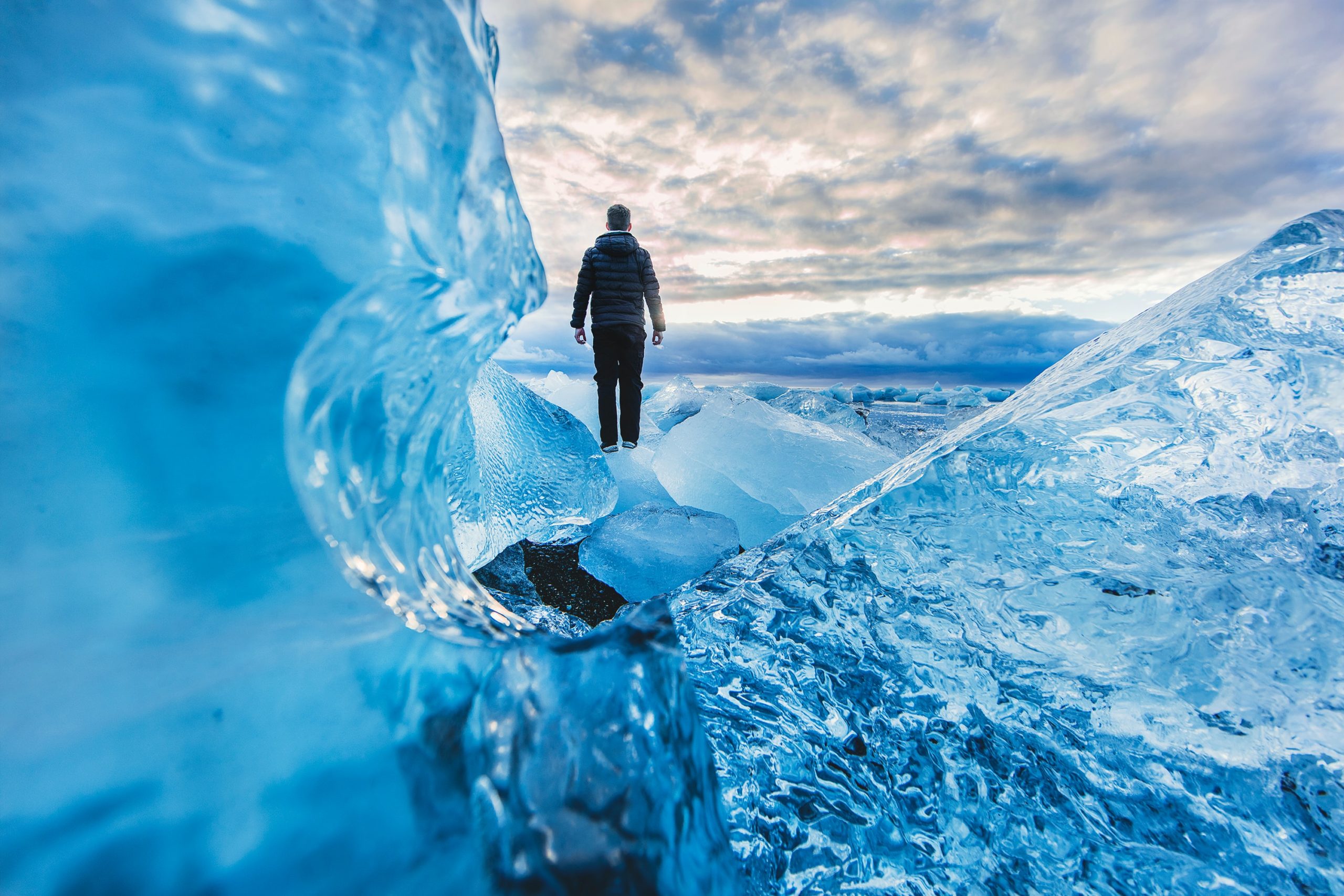
As with all exciting phenomena, it is natural to capture a photograph of the experience to cherish for years to come. The Midnight Sun in Iceland is, of course, no different.
Thankfully, landscape photographers are artists when it comes to using light to their advantage, and thus Iceland will serve as the perfect environment to showcase their talents.
Before setting out on your photographic expedition, make sure to research which sites you most wish to capture. If, for instance, you want pictures of Jökulsárlón, Vestrahorn mountain and Lake Mývatn, you will need to allow yourself plenty of time to travel the breadth of the country.
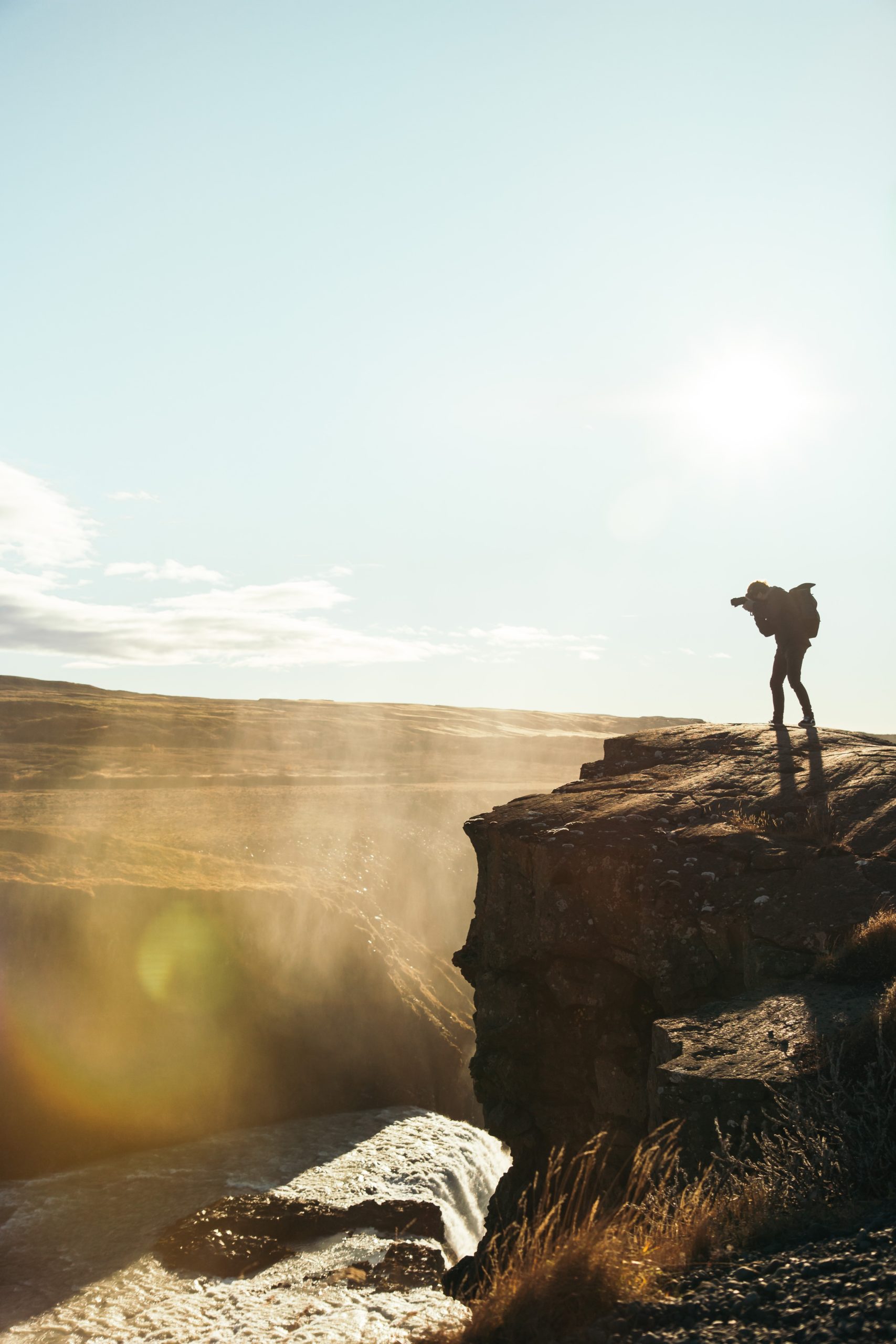
With careful planning, shutterbugs have the opportunity to photograph stunning attractions beneath the Midnight Sun in Iceland. More hours to play with means there is plenty of time to travel between waterfalls and black sand beaches and glaciers, making valuable contributions to the album as you do so.
When it comes to your camera settings, you will want to ensure your ISO is as low as possible, maintaining an aperture of f/7.1 to f/11. From there, you will need to experiment with the shutter speed to find the level of exposure for you, which can be challenging given the great contrasts you wish to harmonise.
A graduated ND filter can help with this tampering, and you will want to make sure your White Balance setting is marked ‘Daylight’.
The Midnight Sun in Iceland offers conditions that are nothing short of a photographer’s dream, and with careful planning, you can capture fantastic images here with ease.
Summary
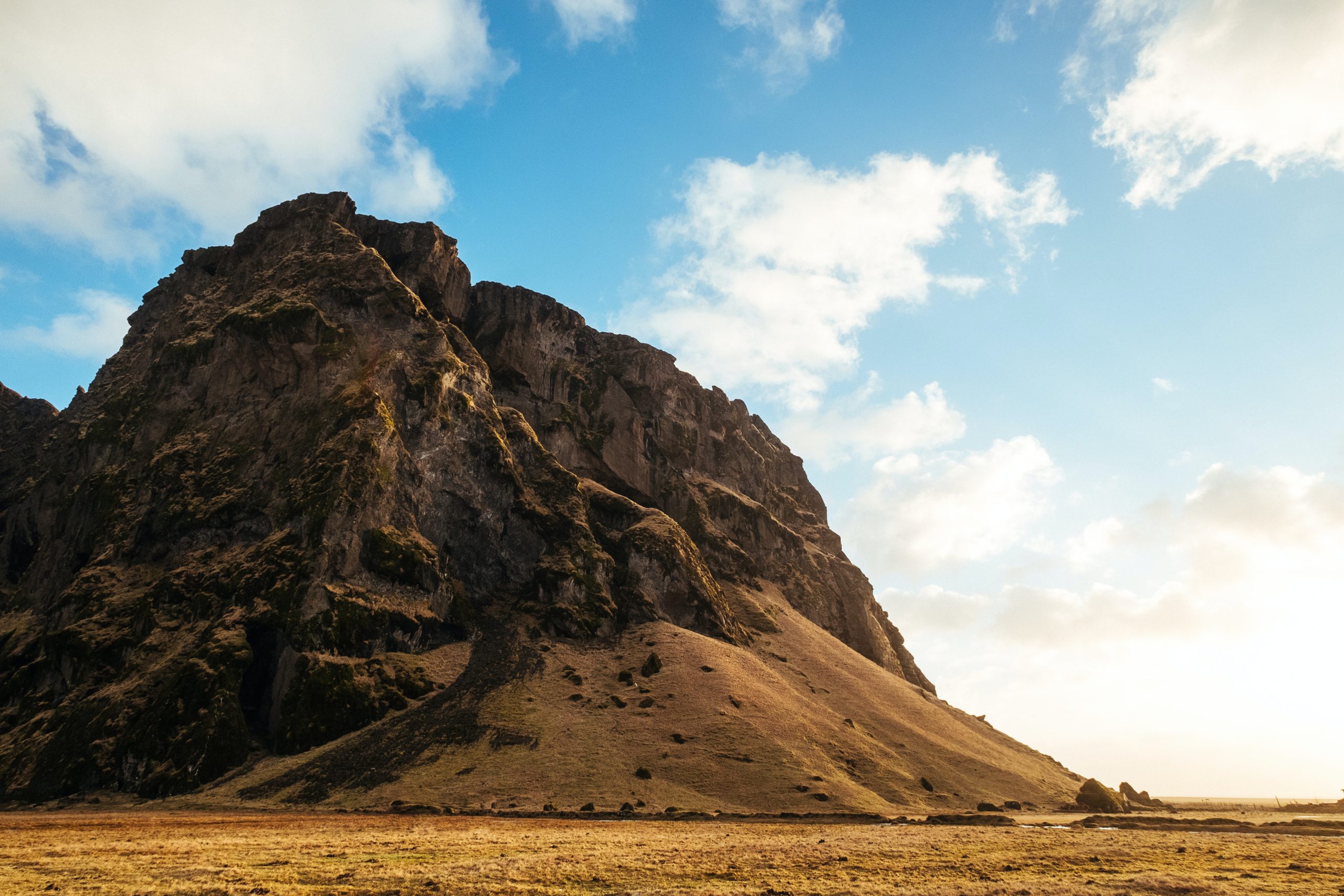
If you like the sound of a country bathed in eternal sunlight—a land of glaciers and deserts and volcanoes straight from a storybook—then Iceland in the summer is the perfect holiday destination for you. With trips booked between May and August, you will have a wealth of time in which to discover all this magical sub-arctic island has to offer.
PLAN YOUR JOURNEY
Travelling to Iceland?
Check our overnight tours with a driver guide that includes a one night stay in a bubble.
*Starting from ISK 59.900 per person
